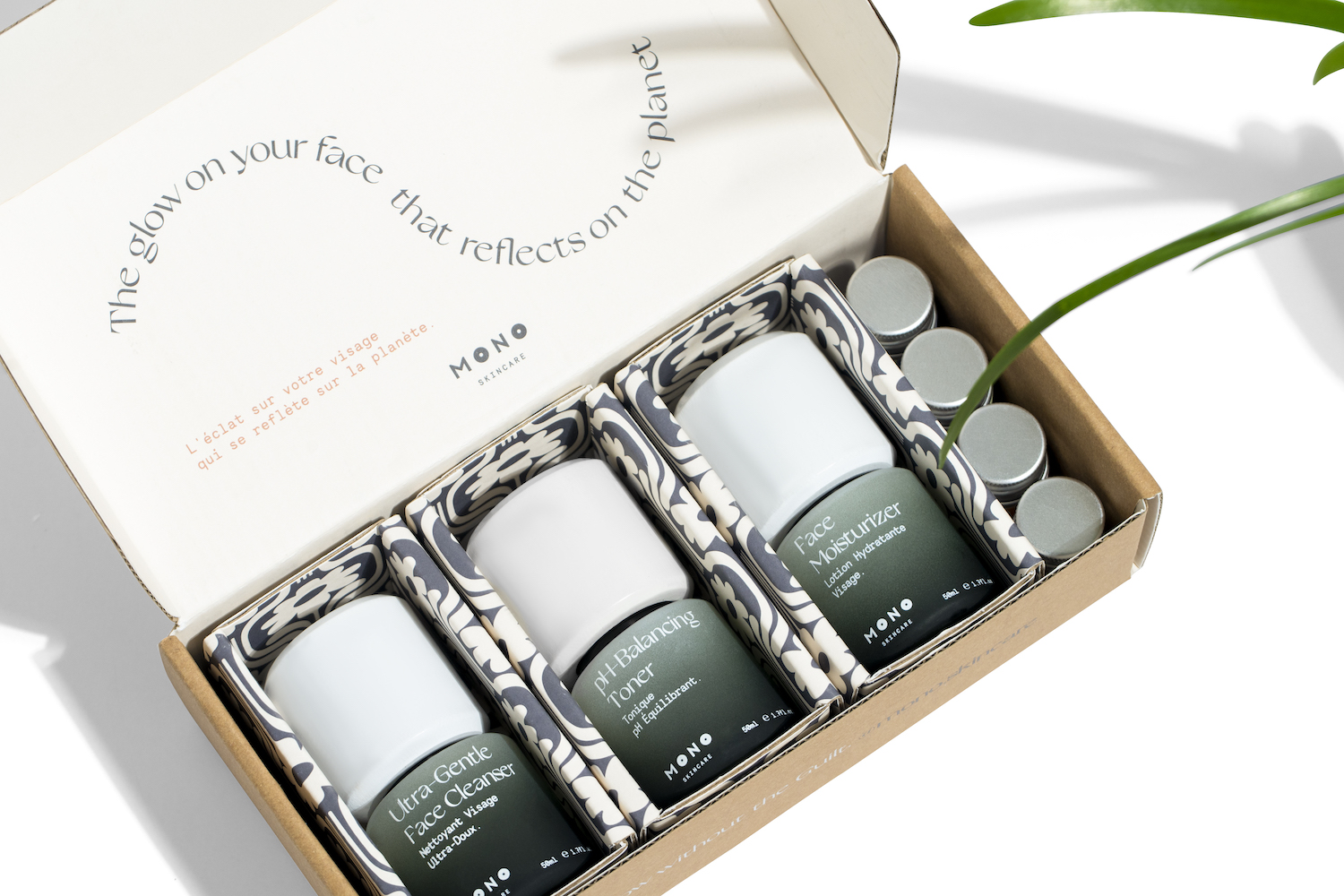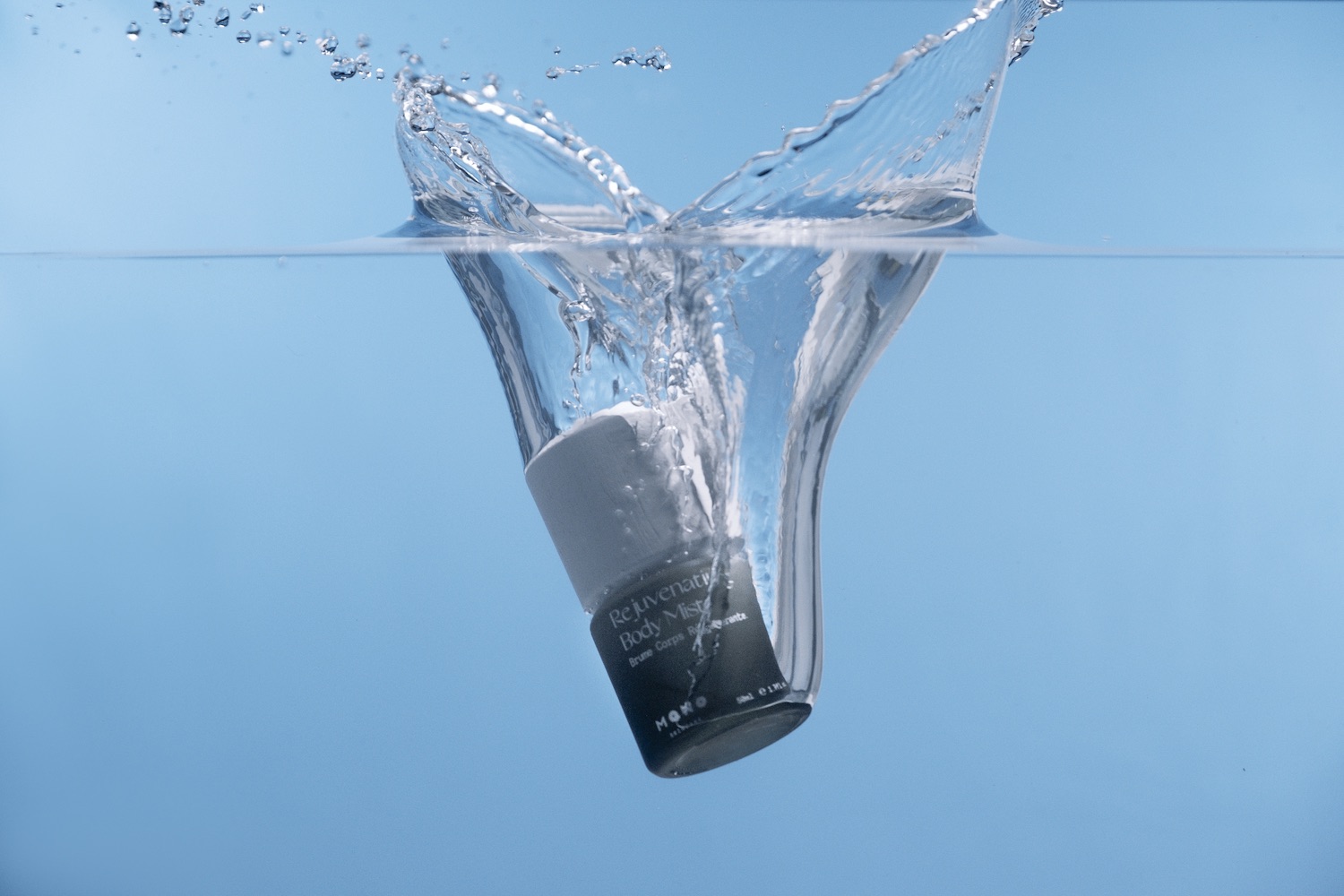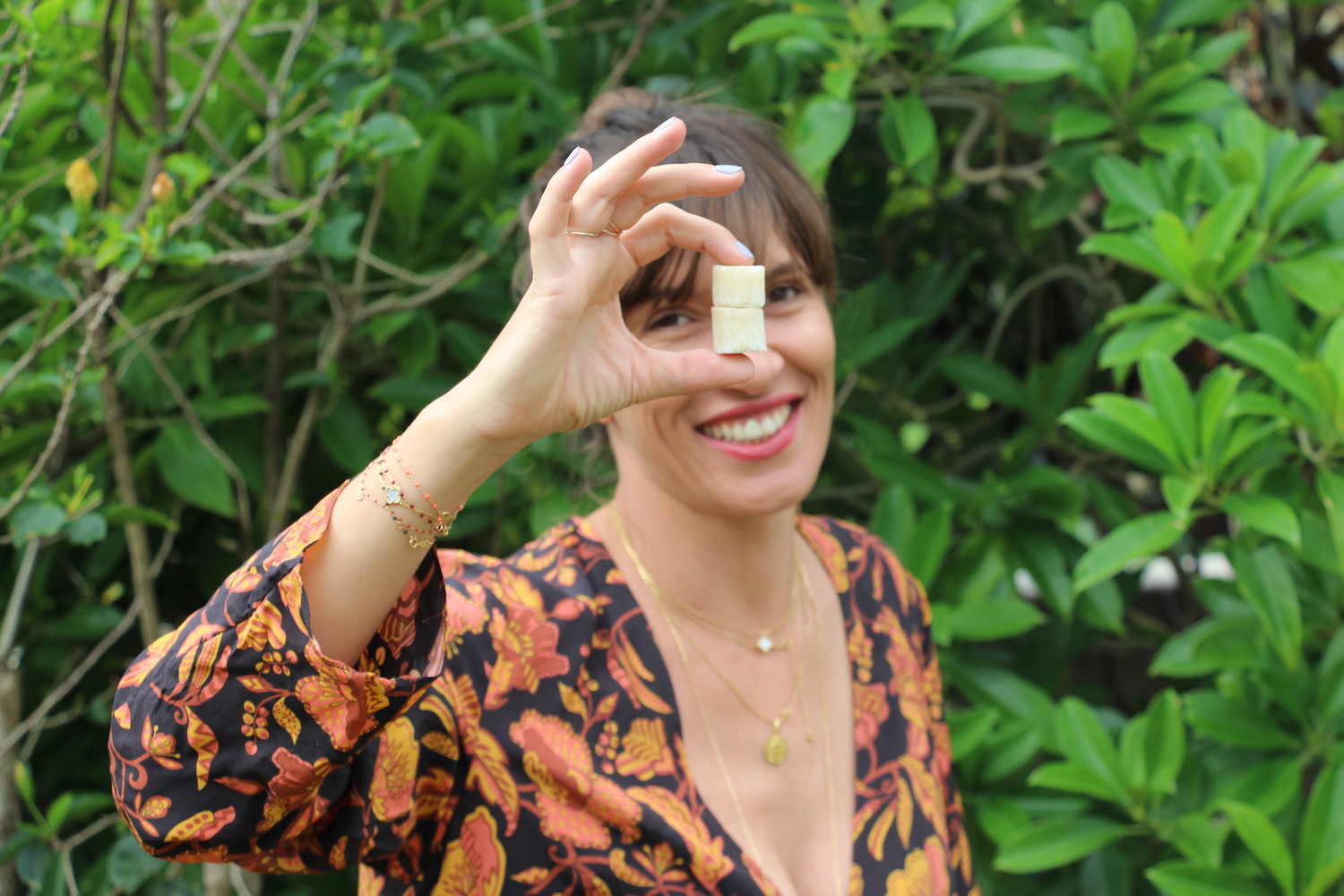
This Microbiome- And Eco-Minded Brand Shrinks Skincare Into Concentrated Tablets
Laurie Mias is an entrepreneur four times over. In 2010, she opened a natural wine cellar in Copenhagen. Four years later, she stuck to the beverage theme, with a plot twist, by founding a cold press organic juicery in Hong Kong, where she’s lived for a decade. Next, she moved into wellness hospitality to create Revivo, which has locations in Bali, Japan and France, and sparked her latest project.
Mias was seeking for a clean and efficacious beauty brand to suit Revivo’s sustainable wellness hotels—and kept coming up short. She says, “I always felt that the science and ingredients could be better, and there could be less packaging and less waste, especially in hotels.” True to her entrepreneurial spirit, she decided, if she was interested in something better than the available brands, she’d have to produce it. Mias, who has delved into studies on how probiotics and prebiotics can slow aging, says, “I wanted the formula to be prebiotic-based—that’s all I knew—and natural.”
In a quest to know more, Mias discovered Blueland, a cleaning brand that specializes in concentrated tablets for items like hand soap and laundry detergent, and thought the product format was ideal for the beauty brand she was looking to launch. The brand she introduced last year, Mono, asserts it has the first microbiome-friendly skincare tablet on the market. A tablet is the equivalent of a bottle of skincare.

Mono’s formulas are activated by dissolving its tablets in 50 milliliters of room-temperature drinking water for roughly 30 minutes. There are seven products—shower gel, shampoo, anti-pollution mist, face mask and makeup remover—and another five on the way. Prebiotics such as inulins derived from agave and chicory feature prominently in the formulas. Products in the pipeline include shower gel, shampoo, anti-pollution mist, face mask and makeup remover. They could be released as early as the second quarter, according to Mias.
For its packaging, Mono has reusable bottles constructed from glass, wood and plastic that come in 50-, 100- and 200-ml. sizes. The price range for individual products goes from 15 euros or nearly $17 at the current exchange rate to 75 euros or about $85. Mono offers refill tablets housed in glass containers that run from 9.50 euros or about $11 to 25 euros or about $28. Mias plans to eventually replace the glass refill containers with recyclable humidity-proof aluminum tubes.
The tablets don’t have occlusive ingredients and thickening agents like nut or seed oils, and Mono replaces them with active powerhouse ingredients. As a result, once the skincare products are constituted, they can be waterier than formulas consumers are accustomed to. Mais admits a Mono formula might take time to get used to, but notes, “Once you have applied it on your skin, especially for three days in a row, it’s really transformative.”
Finding a factory to make the tablets was a huge challenge. Mias cycled through 200 options over five months before landing on a company in Belgium. “They were pretty much the only ones who wanted to give it a try,” she says. “Maybe out of 200, only 50 answered and 25 out of 50 asked me if I was working for L’Oréal or the Estée Lauder group. The other 25 asked me, ‘Why don’t you just do custom white labeling, everybody’s doing that?’ Nobody was reinventing the wheel.”

Prior to its launch, Mono received almost 500 pre-orders from customers in Hong Kong, Germany, France and the United States. Americans make up 60% of its consumer base so far, and more than 5% of customers who received pre-orders have already reordered. Mono is focused on direct-to-consumer distribution now, but Sephora France and Credo are retail targets for it. Mias believes the U.K. could be strong for Mono at retail. The brand has signed on with two retailers in Hong Kong.
Mias raised $300,000 from friends and family members to start Mono. The money went mostly toward patent documentation, research and development, certifications and marketing. To expand Mono’s retail reach, community and three-person team, she has a more ambitious goal of raising $5 million in funding by the end of 2022.





Leave a Reply
You must be logged in to post a comment.